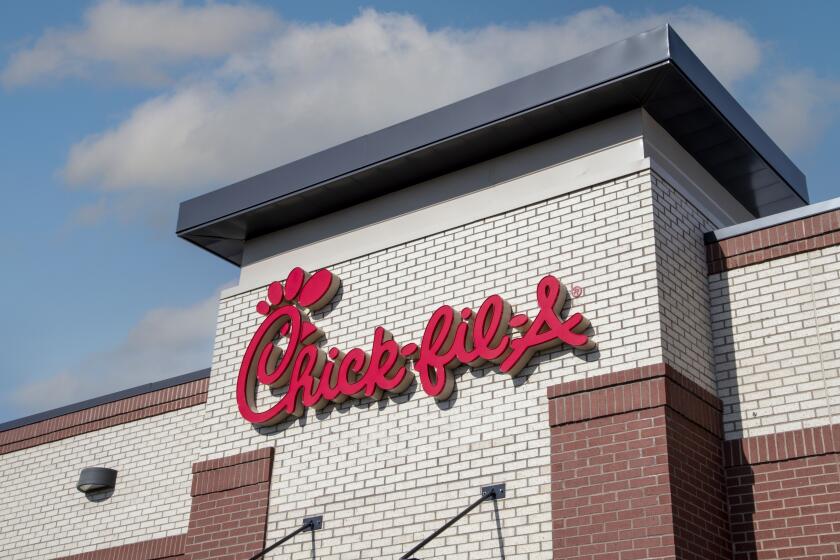In latest stumble, Theranos retracts blood tests

Rather than disrupting America’s blood-testing industry, as it has repeatedly promised, beleaguered biotech start-up Theranos has disrupted care for some patients.
Desperate to stop the shutdown of its California lab, Theranos told federal regulators that it is retracting the results of tens of thousands of blood tests that doctors had depended on to care for patients over the last two years.
The Palo Alto company confirmed a report by the Wall Street Journal that said Theranos was voiding or correcting two years of results from its blood-testing device called Edison – a much-hyped technology that had made company founder Elizabeth Holmes, a Stanford dropout, a multi-billionaire on paper.
Consumers were told that for a low price and a quick finger prick Edison would give them test results in a matter of hours.
But doctors may have made wrong decisions based on the faulty results.
The Journal quoted a Phoenix family doctor who said she received a corrected report from the company for a patient she had sent to the emergency room after receiving abnormal results in late 2014. The corrected blood test report for that patient now shows normal values, she said.
Theranos is withdrawing the test results in an attempt to persuade the Centers for Medicare and Medicaid Services from going through with severe sanctions it proposed this spring, which include banning Holmes from the blood-testing business for at least two years.
Whether the company’s moves will improve its relationship with regulators is not known. Lauren Shaham, a spokeswoman for the federal health agency, declined to comment.
Yet by issuing the corrected test results to doctors and patients, Theranos is admitting that its technology failed.
“This can be very disruptive, but not in the way that Theranos intended it to be,” said John Ioannidis, a professor at Stanford’s School of Medicine. “If a blood test doesn’t work, it can have major consequences on health.”
Brooke Buchanan, a Theranos spokeswoman, said the company hasn’t done “a comprehensive patient impact analysis,” but believes that “there has been no harm to patients.”
“We recommend if someone has received a corrected or voided result that they should contact their physician,” Buchanan said.
The start-up’s escalating problems have caused tensions with its partner Walgreens. The pharmacy chain built Theranos “wellness centers” in 40 of its pharmacies in Arizona as well as in a store in Palo Alto.
The Walgreens partnership was a huge win for Theranos when it began in late 2013, helping to give legitimacy to the start-up’s technology. It also gave Theranos access to consumers going to their corner drugstore.
Now the relationship is threatening to unravel.
Asked if any of the withdrawn tests had affected the pharmacy chain’s customers, Jim Cohn, a Walgreens spokesman, declined to comment.
In January, after regulators unveiled multiple patient safety violations at Theranos’ lab in Newark, Calif., Walgreens suspended the blood testing at its Palo Alto pharmacy. The company also said that blood tests collected at its Arizona stores would only be sent to a Theranos lab operating in that state.
But the Journal reported that Theranos was now recalling many tests performed in its Arizona lab as well. Those tests are performed on a traditional blood-testing machine made by Siemens, which had been programmed to the wrong settings by Theranos.
For years, Holmes had promoted her start-up by saying the company had found a way for consumers to access “less invasive and more affordable” blood testing. With the Edison device, she said, multiple tests could be done with just a few drops of blood “taken from a tiny finger stick.”
But the company has never published any studies in peer-reviewed journals to back up Edison – a point that Stanford’s Ioannidis had warned about a year ago in the Journal of the American Medical Assn.
“This is an acknowledgment on the part of Theranos that their technology is not up to par,” Ioannidis said Thursday of the company’s retraction of the testing results.
The company also faces a criminal investigation by the U.S. Justice Department into whether executives misled investors about its technology and operations, as well as another probe by the Securities and Exchange Commission.
In recent months, Holmes has been trying to turn things around. Last week, the company announced changes to its leadership, including that its president, Sunny Balwani, was retiring.
The company also said it had added three new members to its board of directors, including Fabrizio Bonanni, a former Amgen Inc. executive vice president, and William Foege, a former director of the Centers for Disease Control and Prevention.
“Excellence in quality and patient safety is our top priority,” Buchanan said.
But one of Theranos’ customers, Jean-Louis Gassée, a former Apple executive, warned patients away from the company’s tests on Thursday.
Last year, Gassée compared a blood test he had at the Palo Alto Walgreens for $5.35 to another test he had at the Stanford clinic he regularly visits and found that the results varied as much as 30%.
He needs the test to prevent blood clots from a hereditary condition.
“This is a serious situation,” Gassée said. “It’s pretty obvious that Theranos’ invention is not working.”
Twitter: @melodypetersen
ALSO
Bayer takeover of Monsanto would create a global giant
Google’s new smart products might force it to rethink its ad business
Sports Authority to close all of its stores, including dozens in California
UPDATES:
The spelling of John Ioannidis’ name was corrected at 5:40 p.m.
More to Read
Inside the business of entertainment
The Wide Shot brings you news, analysis and insights on everything from streaming wars to production — and what it all means for the future.
You may occasionally receive promotional content from the Los Angeles Times.











